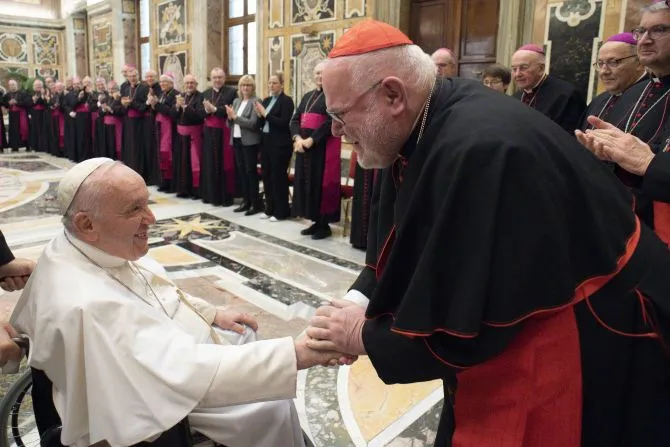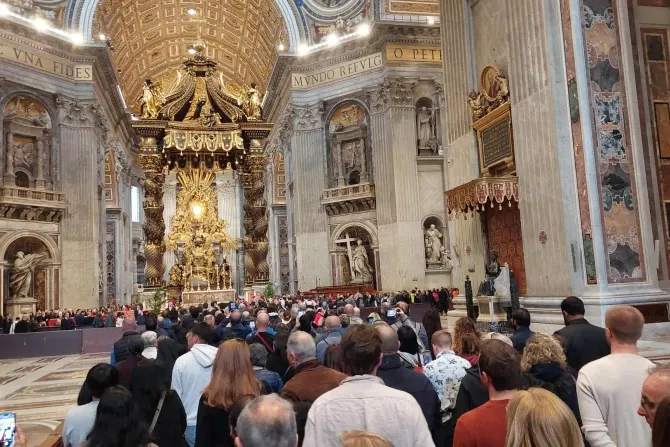“Here the danger is that something very, very ideological trickles in. When ideology gets involved in church processes, the Holy Spirit goes home, because ideology overcomes the Holy Spirit,” he said in the wide-ranging interview that also included remarks about the Church’s stance on homosexuality, the loss of Pope Emeritus Benedict XVI — and his health.
Since its launch by Cardinal Reinhard Marx in 2019, the German Synodal Way has courted controversy.
Participants have voted in favor of draft documents calling for the priestly ordination of women, same-sex blessings, and changes to Church teaching on homosexual acts, prompting accusations of heresy and fears of schism.
Concerns have been publicly raised by Church leaders from Poland, the Nordic countries, and around the world.
Fears of a “dirty schism” from Germany have increased over the past few months, as organizers of the Synodal Way in November refused a moratorium on the process suggested by the Vatican.
In his interview published Wednesday, Pope Francis insisted: “Always try to unite.”
Just two days earlier, on Monday, the latest Vatican intervention against the Synodal Way revealed that even participants in the process are anything but united: Five German bishops, it was reported, had asked Rome to clarify concerns over a synodal council.
Participants of the German Synodal Way in September 2022 voted to create such a controlling body that would permanently oversee the Church in Germany.
The Vatican stated in a letter published Jan. 23 that the Germans are not authorized to install a permanent synodal council to oversee the Church in Germany. The missive was formally approved by Pope Francis.
Despite all these interventions, the Synodal Way — “Synodaler Weg” in German, sometimes translated as the Synodal Path — is currently still expected to continue as planned by its organizers. The next (and so far final) synodal assembly is scheduled to take place in Frankfurt in March.








